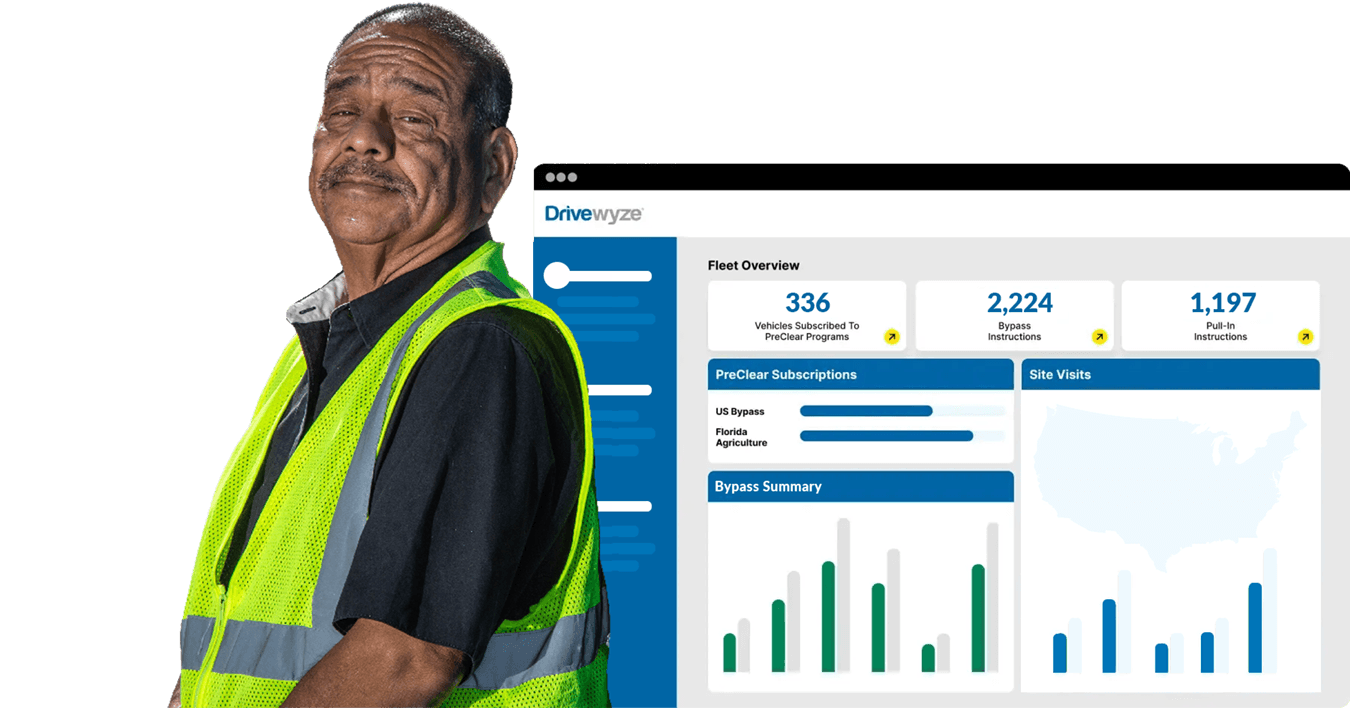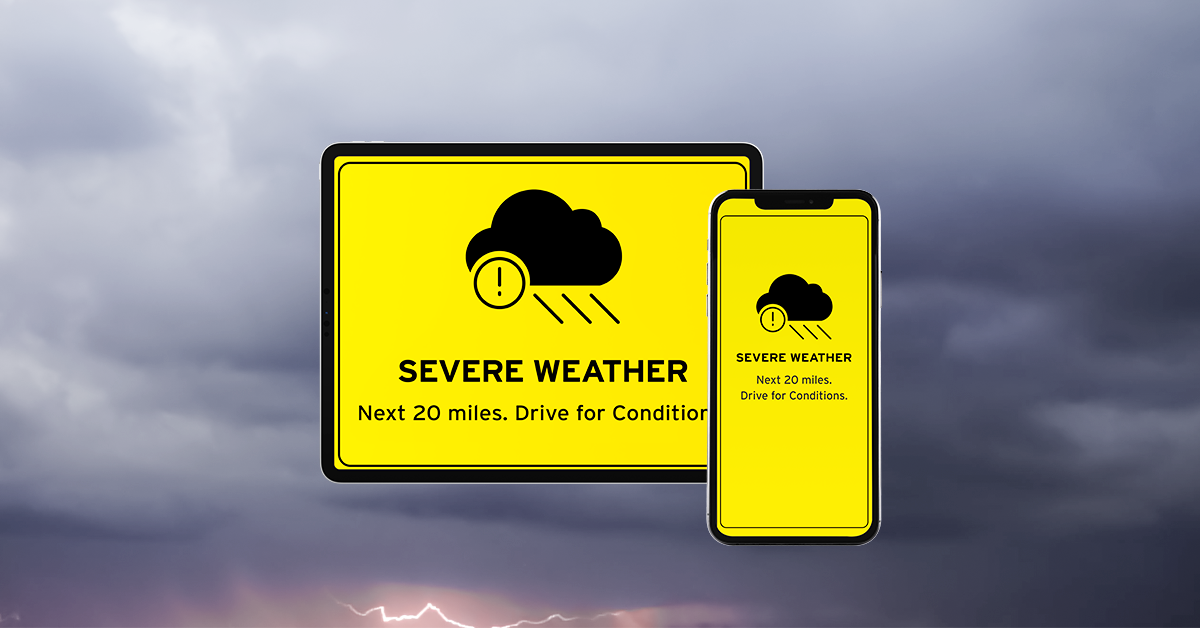The topic of CSA scores often dominates conversations in the trucking industry, both with for-hire and private fleets. But what are CSA scores, and why do they hold such significant weight with truck drivers and trucking companies?
In this guide, we’ll take a look at what Compliance, Safety, and Accountability (CSA) scores are and why they’re so essential by providing insights into their calculation, importance, and the best methods for improvement.
What are CSA Scores?
CSA scores are percentiles calculated through the Federal Motor Carrier Safety Administration’s (FMCSA) Safety Measurement System (SMS) to assess a carrier’s safety performance. The scores, which are assigned to carriers based on their safety performance, are a part of the CSA program, a safety measurement initiative managed by the FMCSA.
CSA scores are essentially designed to hold truck drivers, owner-operators, and fleet operators accountable for compliance with safety regulations.
How are CSA Scores Calculated?
CSA scores are determined based on roadside inspection, traffic enforcement, and crash report data from the previous 24 months. These scores reflect multiple factors, including the number of violations and crashes attributed to the fleet, the severity of those violations and crashes, as well as the age of them. More severe events count more as do more recent events. The factors are viewed in the context of carrier size (e.g., number of trucks and miles driven).
Carriers receive a CSA score for each of the seven Behavior Analysis and Safety Improvement Categories (BASICs):
- Unsafe Driving
- Hours of Service Compliance
- Vehicle Maintenance
- Driver Fitness
- Hazmat Compliance
- Crash Indicator
- Controlled Substances and Alcohol
Below, we’ll take a deeper look into each of the seven basic categories.
Unsafe Driving
This category focuses on the operation of a commercial motor vehicle in a dangerous or careless manner. It includes dangerous practices such as speeding, texting, not wearing a seatbelt, or improper lane changes.
Crash Indicator
According to the DOT’s official SMS methodology, “this BASIC is based on information from State-reported crashes that meet reportable crash standards.” This includes crashes that result in a fatality, injury requiring treatment away from the scene, or enough vehicle damage to require towaway.
HOS Compliance
This BASIC reflects compliance with hours of service limitations (e.g., maximum driving time) and recordkeeping requirements, including the use of an electronic logging device.
Vehicle Maintenance
This BASIC measures compliance with vehicle maintenance and general condition requirements, including vehicle defects (e.g., faulty brakes, bald tires).
Controlled Substances/Alcohol
This BASIC measures compliance with drug and alcohol regulations, including prohibitions on use and employer requirements to test for misuse.
Hazardous Materials Compliance
This BASIC measures compliance with regulations relating to the safe transportation of hazardous materials, including marking, packaging, loading, and the possession of appropriate paperwork for each shipment.
Driver Fitness
This BASIC reflects compliance with regulations requiring employers to ensure drivers are “fit” to drive. In other words, drivers must meet minimum qualifications with respect to age, medical condition, and licensure.
Why Should I Care About a CSA Score?
A carrier’s CSA scores reflect its compliance with Federal safety regulations. A good score can significantly reduce the possibility of interventions, such as roadside inspections and on-site audits.
Maintaining low CSA scores comes with a lot of benefits, including:
- Fewer DOT audits and roadside inspections
- Better opportunity to bypass weigh stations
- Lower insurance rates
- Better reputation in the industry
An essential aspect of getting and keeping a good CSA score lies in hiring drivers with strong safety records. A good place to start is by looking at a potential hire’s Pre-employment Screening Program (PSP) records, which can let you know a lot about their willingness to play it safe.
What are Good and Bad CSA Scores?
Similar to an ISS score, CSA scores are calculated on a percentage scale of zero to 100. A score of 100 equals the worst possible performance, while a zero indicates the best performance (or a lack of data on which to derive a meaningful score). The FMCSA sets intervention thresholds based on crash risk analyses and professional judgment. Generally, staying far below these thresholds positively impacts the operations, profitability, and reputation of carriers and owner-operators.
How to Check Your CSA Score
CSA scores are not publicly available, but checking your scores is easy for carriers. Here are the steps:
- Request a PIN online from the FMCSA website, by email, or via a hard copy letter in the mail.
- Visit the CSA program website using your PIN and carrier name or DOT number.
- View your CSA scores and underlying data that affect your score (crashes, violations, etc.).
Can You Improve Your CSA Score?
CSA scores aren’t set in stone. With persistent compliance, they can be improved by making safety and compliance a core focus of your company. In doing so, you’ll not only increase your CSA scores, but you’ll also improve your ISS scores, which makes weigh station bypass much more likely.
Drivewyze can play a significant role in helping improve your CSA score by providing real-time insights into your fleet’s safety and compliance status with tools like PreClear and Safety+.Our bypass service even records and measures safety inspection data (including violations), highlighting specific areas where your scores can be improved across an entire fleet.
FAQs About CSA Scores
Do Drivers Receive CSA Scores?
No, drivers do not receive individual CSA scores. The scores are assigned to carriers based on their violations and crashes. That means that when an individual driver gets a violation, it negatively impacts the carrier, not the driver (other than their PSP records).
Do CSA Scores Really Matter?
CSA scores are critical to trucking companies. They have a major influence on a carrier’s reputation, safety record, and the potential for negative interventions by FMCSA. All of those factors impact your ability to get customers and remain in operation.
What is CSA Compliance?
CSA compliance is another way of saying “following the Federal Motor Carrier Safety regulations.” Both drivers and carriers are held accountable for violations (to varying degrees), so it’s in the best interest of all parties to prioritize low scores.
How Long Does it Take to Improve Your CSA Score?
That can depend on various factors, including the severity and frequency of violations. If you have several recent and severe violations, it can take longer than usual to improve your score. Violations occurring in the most recent six months bear the most weight. Those more than 12 months old carry the least.
What Happens if You Receive a Violation?
If a driver receives a violation, it is assigned to the carrier and not the individual driver. Repeated violations can negatively affect a carrier’s CSA score.
Choose the Right Partner for Your Company
Understanding and maintaining a favorable CSA score is essential for every carrier. It reflects your commitment to safety and compliance, impacts your reputation, and affects your ability to do business successfully in the transport industry.
Get started with Drivewyze today to increase the efficiency and safety of your entire fleet.

Ready to Get Started?
Learn how North America’s leading carriers use Drivewyze to save money and improve safety.





